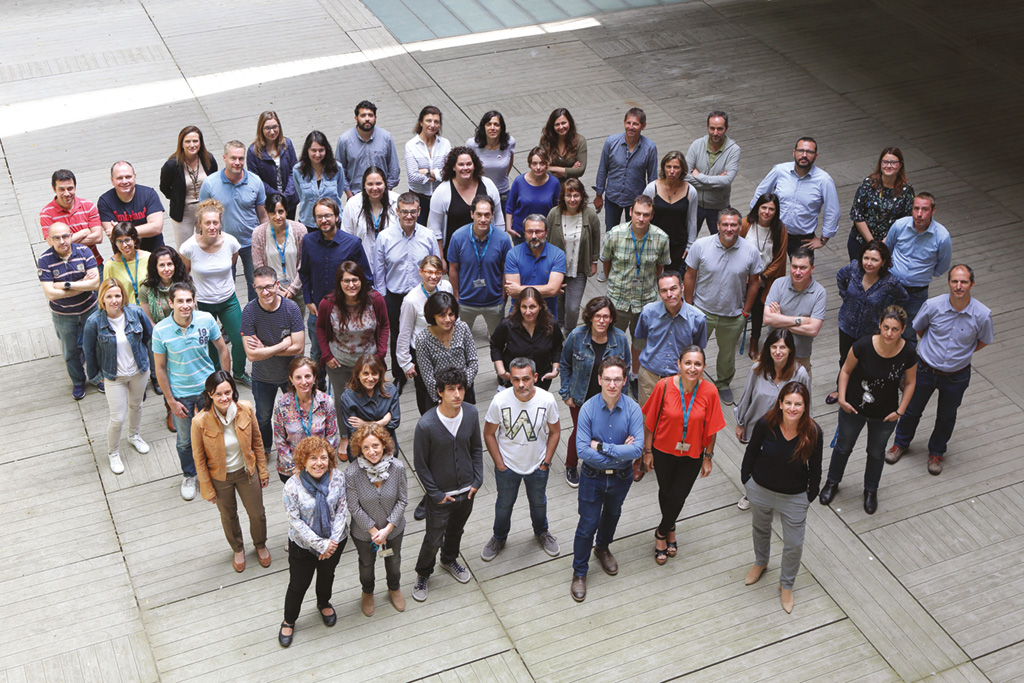The administrative team (including CNAG-CRG) is comprised of members from 10 different countries, and provided critical and dedicated support to the CRG community in 2017 in accordance with the priorities defined in the institute’s 2017-2021 strategic plan and annual action plan.
One of the key recommendations from the external panel, the ”business process management“ project, was implemented in the course of last year with the goal of evaluating and enhancing the administration’s performance and effectiveness, thus enabling continuous improvement across departments. A number of team-building, team development activities and work-life balance initiatives were continued or launched, including the administrative get-together involving group work around the topic of innovation (drawings, short presentations, joint brainstorming and science activities), the teleworking programme, annual performance evaluations, and easy-science activities.
The administrative team contributed to a number of CRG-wide initiatives: the implementation of the LIBRA gender balance action plan, the HR Excellence in Research project, the first gathering of the alumni board in Barcelona, the recruitment of new PIs, and the seamless departure of several research groups, which coincided with a significant peak of junior PIs leaving the institute, an eventuality provided for in the scientific turnover policy. Within the context of the establishment of the local partnership between the CRG and EMBL and with the financial support of the Spanish Ministry for Economy, Industry, and Competitiveness, the administrative team provided advice and support to the recently-created EMBL site in Barcelona in matters relating to IT, health and safety, facility management and purchasing. The new health and safety initiatives achieved in 2017 include the digitisation of a centralised biosecurity register for the use of biological agents, as well as the appointment of lab safety coordinators as local contacts to guarantee the proper use of health and safety regulations in the lab.
With the goal of reaching beyond the CRG, the members of the administration continue to share benchmarks and engage with other institutes at home and abroad, particularly with EU-LIFE institutes. Roundtables were held locally with CERCA institutes to exchange knowledge and best practices. More specifically, the managing director was invited speaker on two occasions, presenting the evaluation of the administration performed in 2016 by an international external expert panel, thus serving as a model for other national institutes.
